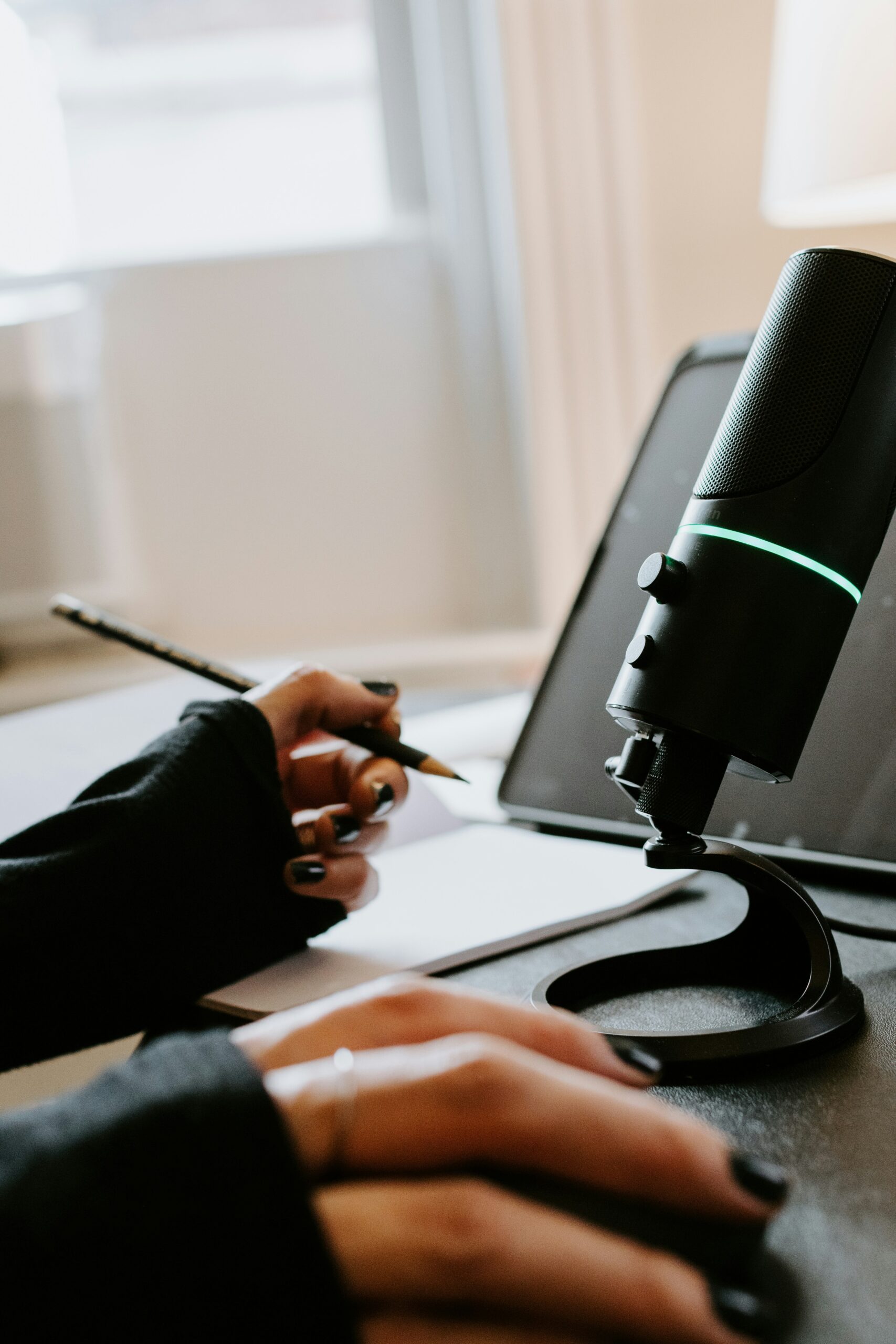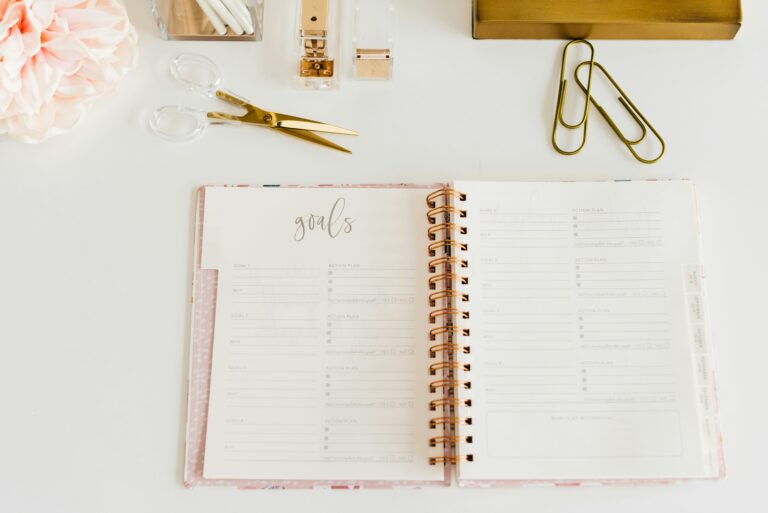Finding Your Voice
If you’re anything like me, then oftentimes, you are your own worst critic—not your boss, not your professors, not your friends or family—you. Sometimes, we trick ourselves into believing that we have nothing of value to say. Or, that when we do speak up, it won’t make any sense at all. I’m here to share some good news: that’s not true!
It took me a while to grasp this, but I realized that I was often muting myself because I was overly critical of how I might be perceived. Oftentimes, our perception of ourselves doesn’t even come close to how amazing we truly are. Once I figured this out—and trust me, it took some time—I found my voice. I was finally able to speak up in meetings at work, raise my hand when I didn’t understand, confidently present my work, and contribute my thoughts to meaningful conversations.
If your goal is to find your voice, I’ve got some tips to help you along the way!
FIND YOUR VOICE THROUGH EXPERIENCE
I once heard the phrase, “Experience is the best teacher,” and wow—if that’s not the truth, I don’t know what is! While there are amazing teachers, incredible books, and inspiring self-help podcasts, there’s nothing quite like being a student of experience. When it comes to finding our voice, the first step isn’t to perfect it—the first step is simply to use it. Now, you might ask, how do we gain that experience? The answer is simple: there’s nothing to it but to do it!
I remember being the baby developer on a team filled with people who had years of software development experience. Let me tell you—it wasn’t easy. I think back to some of my first demo meetings, where I had to present my work from the past sprint to the team. When it was my turn to speak, I was so nervous I could have cried. It wasn’t just the act of presenting my work that made me anxious; it was what came afterward.
Our team has a practice called a retrospective. During this activity, we share what went well during the sprint and what we could improve on as a team. It’s an opportunity to openly discuss strengths and weaknesses, and honestly, I hated it. (Hate is a strong word, but you get the idea.) Thoughts like, What if I say the wrong thing? or What if what I see as a strength is actually a weakness to someone else? would swirl through my mind. This self-doubt kept me silent during those retrospectives. I would wait for someone else to speak, then just blindly agree with whatever they said.
Then, one day, something clicked. I thought to myself, If I don’t start speaking up now, I never will. I realized the only thing holding me back from being a better spokesperson was my own fear—and my lack of practice in using my voice.
I still remember the first retrospective where I decided to voice my opinions. I told myself that, no matter how my thoughts sounded to others, I was going to share them. To my surprise, my ideas were not only accepted but widely appreciated. My coworkers genuinely valued my perspective. Over time, I became known as the “queen” of retrospectives, and it wouldn’t have happened if I hadn’t allowed myself the opportunity to gain that experience.
FIND YOUR VOICE THROUGH TRIAL AND ERROR
I would be wrong to tell you that finding your voice doesn’t come with some trial and error. Sometimes, it takes saying the wrong thing at the wrong time—or even completely blanking on what you want to say—before you start to figure it out. This ties back to the idea of finding our voice through experience. But what if I told you that this trial-and-error process doesn’t have to be humiliating? What if I told you that you could practice getting it wrong until you got it right without feeling embarrassed in front of your managers or professors? Let me share what worked for me—it might work for you, too!
Before one of my first presentations at work, I was extremely nervous. I was so worried about saying the wrong thing—or worse, saying something so boring that no one would even pay attention. (Because let’s face it, being completely boring is a real fear, too!) Here’s what I did: I sent my presentation to a coworker and asked her to review it. I wanted her honest feedback on what was working and what could be improved. She pointed out areas where I could make the presentation stronger, and I used her input to create a final draft.
Having a fresh set of eyes on my work helped me catch errors and identify areas for improvement before the actual presentation. This practice has been a game-changer for me, and I do it as often as possible. You wouldn’t believe how many drafts and revisions I go through for each demonstration or presentation!
The truth is, practice truly makes perfect. Finding your voice is a process, and trial and error is a big part of that journey. But with preparation and feedback, you can make that process feel a lot less overwhelming.
FIND YOUR VOICE THROUGH PREPARATION
We’ve all probably heard the saying, “Proper preparation prevents poor performance.” I’ve learned to live by this mantra. So many times when I was scared to speak up or present, it all boiled down to one thing: I wasn’t prepared enough. Sometimes, my fear wasn’t just about being overly critical of myself or worried about saying the wrong thing—I simply wasn’t ready.
Here’s the good news: there’s a simple remedy for a lack of preparation—prepare better next time. That’s it. For me, becoming more confident and ready to speak up came down to properly preparing what I was going to say. Now, let me be clear: this doesn’t mean you need to write out every single word you plan to say. Trust me, you’ll sound like a robot if you do that. (And take it from me—I’ve had far too many “robotic” moments!)
Instead, focus on creating an outline of your talking points. Whether it’s mental notes in your head, digital notes on your phone, or even good old-fashioned notes on a piece of paper, take the time to prepare! This small step makes a world of difference. It will not only help you feel more confident but also empower you to actually use your voice in meaningful ways.
Finding your voice is a process—it’s not something that happens overnight. This journey will be filled with trial and error, plenty of laughter, and a few embarrassing moments along the way. Most importantly, it will be a journey where you’ll learn so much about yourself. You’ll discover that you’re stronger than you think and that your voice matters more than you ever imagined.
Whether you’re preparing for a presentation, gearing up for an important conversation with your boss, or figuring out how to speak up in meetings – never forget the power of your own voice. You are amazing, and the world deserves to hear what you have to say!

